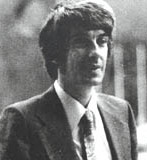Top 81 Rationalism Quotes & Sayings - Page 2
Explore popular Rationalism quotes.
Last updated on December 21, 2024.
We've learned a lot from the great psychologists. Wilhelm Reich wrote about the relationship between fascism and sexual repression. Freud rediscovered the underworld of consciousness that European rationalism had denied. But when you have a nation of people in therapy and counselling, "support" groups for every kind of human condition, where, in the clichés of that milieu, people "share" and "heal," the question, "What for?", "What now?" is no longer asked.
It is for Muslim scholars to study the whole history of Islamic science completely and not only the chapters and periods which influenced Western science. It is also for Muslim scholars to present the tradition of Islamic science from the point of view of Islam itself and not from the point of view of the scientism, rationalism and positivism which have dominated the history of science in the West since the establishment of the discipline in the early part of the 20th century in Europe and America.
I was born into a working class Irish Catholic family at the brutal bottom of the Great Depression. I suppose this early imprinting and conditioning made me a life-long radical. My education was mostly scientific, majoring in electrical engineering and applied math. Those imprints made me a life-long rationalist. I have become increasingly skeptical about, or detached from, the assumption that radicalism and rationalism are the only correct perspectives with which to view life, but they remain my favorite perspectives.
As modern physics started with the Newtonian revolution, so modern philosophy starts with what one might call the Cartesian Catastrophe. The catastrophe consisted in the splitting up of the world into the realms of matter and mind, and the identification of 'mind' with conscious thinking. The result of this identification was the shallow rationalism of l' esprit Cartesien, and an impoverishment of psychology which it took three centuries to remedy even in part.
To later Romans Ennius was the personification of the spirit of early Rome; by them he was called "The Father of Roman Poetry." We must remember how truly Greek he was in his point of view. He set the example for later Latin poetry by writing the first epic of Rome in Greek hexameter verses instead of in the old Saturnian verse. He made popular the doctrines of Euhemerus, and he was in general a champion of free thought and rationalism.
There is nothing more negative than the result of the critical study of the life of Jesus. The Jesus of Nazareth who came forward publicly as the Messiah, who preached the Kingdom of God, who founded the Kingdom of Heaven upon earth, and died to give his work its final consecration, never had any existence. He is a figure designed by rationalism, endowed with life by liberalism, and clothed by modern theology in an historical garb.
In no other field of scientific endeavor do otherwise intelligent people feel free to make public claims based on prejudice and ignorance. Yet in relation to psychic phenomena, committed materialists feel free to disregard the evidence and behave irrationally and unscientifically, while claiming to speak in the name of science and reason. They abuse the authority of science and bring rationalism into disrepute.
Skeptics, who flatly deny the existence of any unexplained phenomenon in the name of 'rationalism,' are among the primary contributors to the rejection of science by the public. People are not stupid and they know very well when they have seen something out of the ordinary. When a so-called expert tells them the object must have been the moon or a mirage, he is really teaching the public that science is impotent or unwilling to pursue the study of the unknown.
The truth is that my work - I was going to say my mission - is to shatter the faith of men here, there, and everywhere, faith in affirmation, faith in negation, and faith in abstention in faith, and this for the sake of faith in faith itself; it is to war against all those who submit, whether it be to Catholicism, or to rationalism, or to agnosticism; it is to make all men live the life of inquietude and passionate desire.
There are so many intellectual and moral angels battling for rationalism, good citizenship, and pure spirituality; so many and such eminent ones, so very vocal and authoritative! The poor devil in man needs all the support and advocacy he can get. The artist is his natural champion. When an artist deserts to the side of the angels, it is the most odious of treasons.
and while faith based on theological reasoning is today universally engaged in a bitter struggle with doubt and resistance from the prevailing brand of rationalism, it does seem that the naked fundamental experience itself, that primal seizure of mystic insight, stripped of religious concepts, perhaps no longer to be regarded as a religious experience at all, has undergone an immense expansion and now forms the soul of that complex irrationalism that haunts our era like a night bird lost in the dawn.
There are also two Christianities in the world today. There is (1) the Christianity of the New Testament, and there is (2) the Christianity of accommodation to modernism, egalitarianism, niceness, naturalism, pop psychology, secular humanism, relativism, subjectivism, individualism, "Enlightenment" rationalism or postmodern irrationalism. New converts to the first Christianity are constantly amazed and scandalized by finding many of their clergy to be in love with the second and in fear of the first.
Unlike the rationalism of the French Revolution, true liberalism has no quarrel with religion, and I can only deplore the militant and essentially illiberal antireligionism which animated so much of nineteenth-century Continental liberalism. ... What distinguishes the liberal from the conservative here is that, however profound his own spiritual beliefs, he will never regard himself as entitled to impose them on others and that for him the spiritual and the temporal are different sphere which ought not to be confused.
The great ideas of the West - rationalism, self-criticism, the disinterested search for truth, the separation of church and state, the rule of law, equality before the law, freedom of conscience, thought, and expression, human rights, and liberal democracy- quite an achievement, surely, for any civilization- - remain the best, and perhaps the only, means for all people, no matter of what race or creed, to reach their full potential and live in freedom.
The central problem of our age is not liberalism or modernism, nor the old Roman Catholicism or the new Roman Catholicism, nor the threat of communism, nor even the threat of rationalism and the monolithic consensus which surrounds us. All these are dangerous but not the primary threat. The real problem is this: the church of the Lord Jesus Christ, individually corporately, tending to do the Lord’s work in the power of the flesh rather than of the Spirit. The central problem is always in the midst of the people of God, not in the circumstances surrounding them.
Hellenic science is a victory of rationalism, which appears greater, not smaller, when one is made to realize that it had been won in spite of the irrational beliefs of the Greek people; all in all, it was a triumph of reason in the face of unreason. Some knowledge of Greek superstitions is needed not only for a proper appreciation of that triumph but also for the justification of occasional failures, such as the many Platonic aberrations.
Evangelicals have like millions of rules. And it's just, uh, we have sort of an accepted, rationalism within which we frame religion. And we think that belief, intellectually, is of the same as relationship. And in our Western family conversation, that's become an incredible impediment toward actual wholeness, where the heart and the head are aligned and relationship -- with not just God but with each other.
Our families may be corrupted by worldly trends and teachings unless we know how to use the [Book of Mormon] to expose and combat the falsehoods in socialism, organic evolution, rationalism, humanism, and so forth.…And our nation will continue to degenerate unless we read and heed the words of the God of this land, Jesus Christ, and quit building up and upholding the secret combinations which the Book of Mormon tells us proved the downfall of both previous American civilizations.
Science is not sacrosanct. The mere fact that it exists, is admired, has results is not sufficient for making it a measure of excellence. Modern science arose from global objections against earlier views and rationalism itself, the idea that there are general rules and standards for conducting our affairs, affairs of knowledge included, arose from global objections to common sense.
You all know that certain things are necessary to make a religion. First of all, there is the book. The power of the book is simply marvellous! Whatever it be, the book is the centre round which human allegiance gathers. Not one religion is living today but has a book. With all its rationalism and tall talk, humanity still clings to the books. In your country every attempt to start a religion without a book has failed. In India sects rise with great success, but within a few years they die down, because there is no book behind them. So in every other country.




















